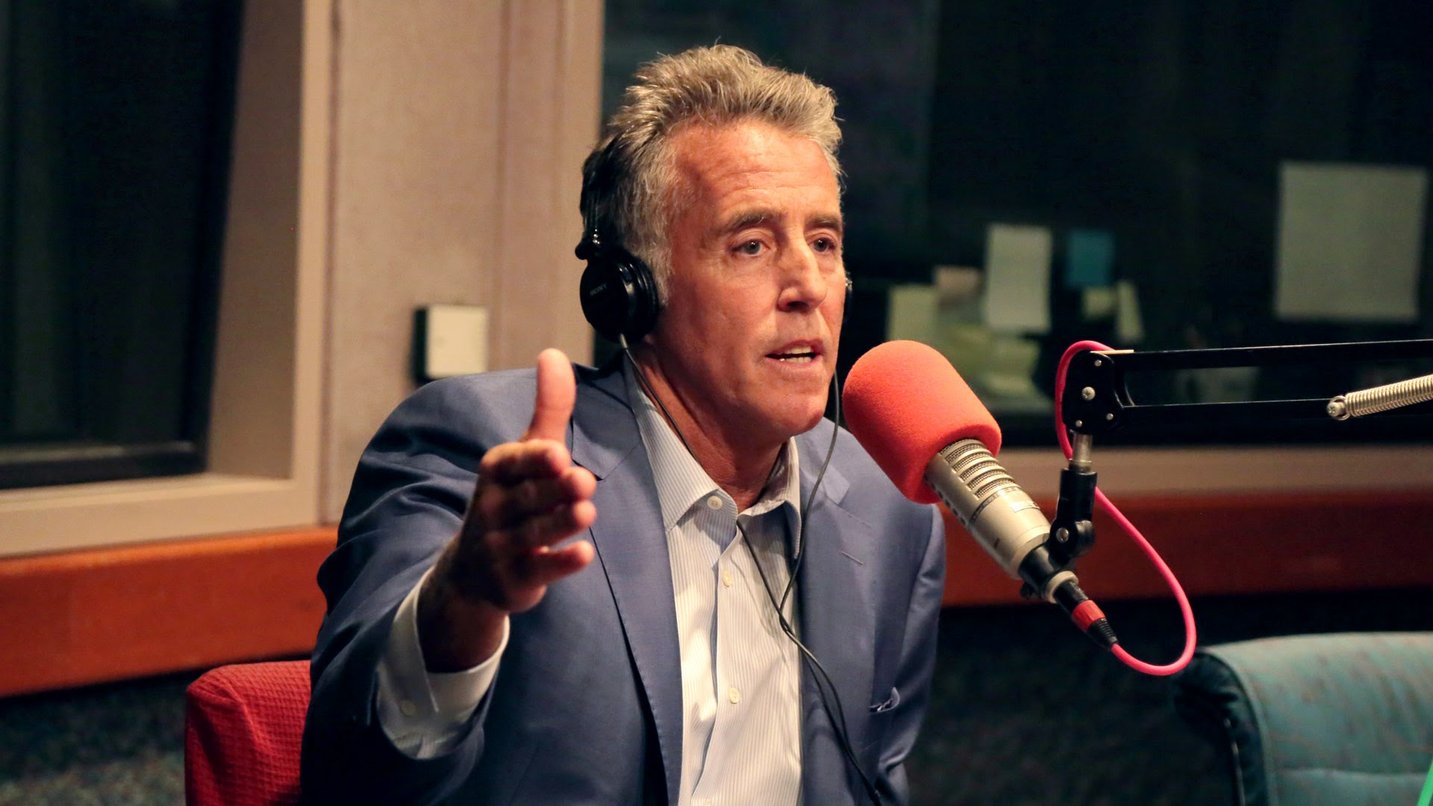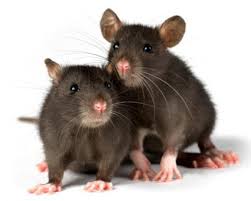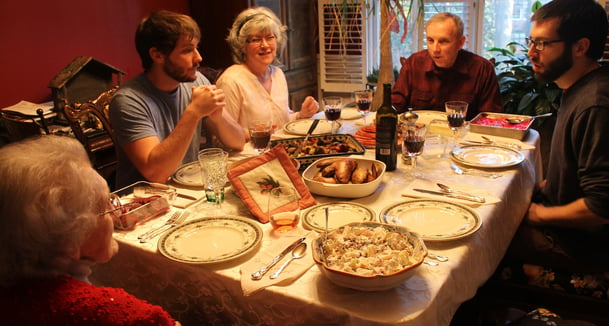
Photo credit: Connie Ma
Today we're speaking with author and activist Christopher Kennedy Lawford. He has spent twenty years in the film and TV industries as an actor, lawyer, executive, and producer. He's the author of three New York Times best selling books, Symptoms Of Withdrawal, Moments Of Clarity, and Recover To Live.
In this interview we're talking with Christopher about his new book, When Your Partner Has An Addiction, which is co-written with Beverly Engel. Our focus is on healing core issues and trauma recovery, since that is what we do here at The Clearing. Listen to the interview or read the interview transcript below.
When Your Partner Has An Addiction
Caroline: Welcome Christopher. Thank you for joining us.
Christopher: Good to be here Caroline, thanks for having me.
Caroline: Just to get started, let's do a very quick overview of your recovery, and your journey. Could you tell us a bit about how your addiction began, and some of the underlying core issues that were really driving it?
Christopher: Well I've been actually in long term recovery for thirty years. I began my drug and alcohol use when I was twelve years old as a lot of people do, and facing adolescence.
 I talk about it as being an addictive perfect storm.
I talk about it as being an addictive perfect storm.
I had the genetics that ran in my family. I also had the trauma from the assassination of two of my uncles, which was replayed every day for fifty years basically. I had a form of PTSD that was never acknowledged or talked about, and certainly never treated.
Then also this was 1968, 1969, so I grew up in a very permissive time in history with very little understanding about this issue about drug and alcohol.
There was something known about alcoholism, but very little known about the drugs that everybody was taking. As a matter of fact, I remember when cocaine came out everybody said it was good for you. There was intergenerational drug use, and obviously no ability for the family to do much about it in terms of intervention or treatment.
That was my perfect storm. It began when I was twelve and ended when I was thirty.
Caroline: Wow … I'm so glad you came through that storm, and we get to talk about it today. Your new book, When Your Partner Has An Addiction … I found it so helpful, especially this one profound line. It's at the very beginning:
No one consciously chooses an addiction to a substance or behavior over his or her partner. There are always reasons -- powerful ones -- why a person retreats into addiction.
Can you tell us what are some of those powerful reasons why people retreat into addiction?
Christopher: Well, you know you have to look at addiction as the behaviors and the chemicals that people take as a form of treatment.
They're trying to treat some underlying cause and conditions.
Most of those have to do with trauma and family of origin issues. Those issues are usually not really well known to the people that are beginning this; a lot of this behavior starts when folks are younger.
They have little understanding about the causes and conditions that are forcing them to look for solutions that they're not getting through the normal channels.
They're trying to treat some underlying cause and conditions. Most of those have to do with trauma and family of origin issues.
It's a combination of a need to treat and an inability to find adequate treatment, whether that's about family relations, or whatever it is …. I've been an advocate now for eleven years, and I've seen a major shift in our society’s willingness to talk about these things, and our obvious understanding of what's really going on here; the brain science, the social and psychological advancements that we've made in terms of dealing with this issue, the acknowledgement of trauma as a major factor in these things.
That's going to change the landscape because this is a disease that thrives in isolation.
 I think a lot of people talk about the rat studies that were done at the International Institute of Health as a validation of the power of these behaviors, or these chemicals in the brain.
I think a lot of people talk about the rat studies that were done at the International Institute of Health as a validation of the power of these behaviors, or these chemicals in the brain.
If you put a rat in a cage, and you put a metal bar down that shocks them, they won't go across that bar for the major biological imperatives, sex, food, and water. If you addict them to these chemicals, they'll go across that bar everyday.
Now they did a follow up in British Columbia, and basically, they had a bunch of rats in the cage.
Rats in the community do not demonstrate the same things that rats in isolation demonstrated.
That's true for human beings also …. When I did a book called Recover To Live, I was working for the United Nations at the time as a Goodwill Ambassador.
Rats in the community did not demonstrate the same things that rats in isolation demonstrated.
There' a guy over in Vienna named Gilberto Gerra, who's a very smart doctor …. He was the one who single-handedly changed the focus of the UN from strictly source eradication to actually treating this illness.

His theory is the greatest prevention for this illness is the family dining room table. If people sit down to eat, and know what's going on each other's lives, this disease cannot exist as easily.
Caroline: That is such a great point. You have this great line in your book: “It is disconnection that drives addiction.”
If you have those strong connections, you're a lot less likely to turn to drugs or alcohol.
Christopher: That's correct.
Caroline: You also have made a great point there about trauma, and how trauma is connected to addiction.
When we speak about trauma, obviously there's a medical definition, but then there's also a psychological one that is about your subjective experience.
Abuse and neglect are pretty universally traumatic. Can you talk a bit about more why there's such a strong link between trauma in childhood and addiction in adulthood?
Christopher: Well, I just did a interview with a really smart guy by the name of Neil Steinberg, who's written a lot about this.
 In the interview we talked about trauma, and he basically said in the piece that he thought trauma was basically an excuse that we use for this kind of behavior, because there are plenty of people who suffer trauma who don't develop a chemical dependency, or a behavioral addiction, which is true.
In the interview we talked about trauma, and he basically said in the piece that he thought trauma was basically an excuse that we use for this kind of behavior, because there are plenty of people who suffer trauma who don't develop a chemical dependency, or a behavioral addiction, which is true.
However, the existence of a genetic predisposition coupled with trauma, or the lack of a sufficient social construct ...
I'll give you a personal example from my life.
My daughter is in long-term recovery six years now, and she suffered trauma because I left her mom when she was eleven years old.
It was very traumatic for her. She adored me and it was really a huge thing. She began a period of depression, anxiety, and chemical use.
She found out that later on when she was nineteen, that she actually qualifies as an alcoholic and a drug addict. She has the genetics, she had the trauma, and she developed the illness.
The difference was that she had two parents, although we weren't together, and there was a lot of acrimony, but now there's not. There was a lot of that kind of stuff that went on.
I would argue that it's traumatic being a human being.
We were able to intervene in her life in a significant way, and she's changed her trajectory.
Whereas it took me until I was thirty years old, and ten years of that was actively trying to get clean and sober, and nothing worked for me.
She was able to do it because the intervention happened early, it happened significantly.
She also had a culture around her in Los Angeles where she could plug into something that meant something.
Nobody thought that I couldn't go back into the environments that I was coming out of when I went to treatment.
There was no concept that maybe it's not the best idea for Chris to go back to the Upper East Side of New York, and live twenty blocks away from a methadone clinic, or whatever, or a shooting gallery. There's a lot.
The issue with this illness, why it's so challenging, because it's so complicated. There's not one answer, but...I would argue that it's traumatic being a human being.
Caroline: I would too.
Christopher: I would also argue that in my experience …
...there's no science for this, but my anecdotal experience is that the alcoholics and drug addicts that I know are hypersensitive.
You know there are people that pooh-pooh that, and they go, "Well everybody's sensitive, and blah, blah, blah."
Well I'm not buying it. I'm just not buying it.
I'm just saying there are some people that are more sensitive than others. Many people that have this illness are. Many of them also have exasperated trauma.
If you have that and genetics, you're a sitting duck.
Caroline: That is such a great point. I agree that there's myth that you talk about in the book that people who struggle with addiction: that they're unloving, or they're incapable of love.
I hear what you're really saying is that often they're actually very sensitive, and very invested, and they care a lot. Often that's why they turn to drugs, because it's like they need to cope with their high sensitivity in this sometimes traumatic world. See our post on trauma and addiction.
Christopher: Right. Let's be clear.
These medications are enormously effective.
And even when they're not, people are addicted to the memory of how effective they are. Nora Volkow, who's one of the smartest people in the world on this issue, and runs the National Institute on Drug Abuse says that addiction isn't about anything but memory.
Addiction isn't about anything but memory.
Caroline: Oh, I love that.
Christopher: Yeah.
She's right.
She's absolutely right.
As we all know, these things stop working, but the memories of when they did work are so profound, and they work so well, so that's the difficulty.
That's why obviously opioid addiction is particularly problematic because that works better than anything.
Caroline: Right. Wow, I love that, that addiction's about memory. And if you're someone who carries around a lot of shame, or guilt, or hurt, than that memory is so compelling of a time where you felt good, you felt free, you felt happy. Can you talk a bit about the role of shame in addiction?
Christopher: Yeah.
 First of all I think this illness itself has a lot of shame attached to it.
First of all I think this illness itself has a lot of shame attached to it.
It's real shame because … the other issue is that we understand this as a disease.
We understand that it's connected to a brain illness.
We understand there's genetics involved.
We understand there's trauma involved.
We understand all of these things, but truthfully most people have a difficult time separating out an addict's culpability.
Somehow a person who has diabetes or hypertension isn't responsible for that, but an addict is really responsible on some level for the continuation of their addiction.
There's an additional voluntary act of picking up the syringe, or the drink.
Others say, “Well just don't pick it up,” which makes sense. It's like “Just say no.” It's such a thing.
It's absolutely wrong.
You're never going to convince people, even addicts by the way …. You get into a twelve step program, and there's a lot of people who start sounding like Nancy Reagan after a little bit, even though they know better.
They're like, “Obviously you're not doing something right, because you're continuing to use. Obviously you're not working the program well enough, blah, blah, blah.”
It's bullshit.
Caroline: Yeah. Those shaming messages, and “Just stop. Why don't you just stop?”
Christopher: Yeah.
Then obviously there are other aspects to the behavior … this is a disease where people that have it present in very shameful negative ways.
Whereas if you have cancer, or you have diabetes, you're not going to drive your car into a crowd of people, or throw up on your future mother-in-law, or whatever the behavior is that's like, “Oh my god, I can't believe he did that.”
Caroline: There's a lot of collateral damage.
Christopher: It results in a lot of collateral shame, man.
Everywhere you look there's this piece of it.
That's why I keep coming back to people going, "Why can't we do something about this?"
Well it's really complicated.
You have to address every aspect of a person's life, plus you're going to have to reorient them, and re-educate them in terms of what they need to know in order to get a life that they don't want to throw away again.
We spend a lot of money on prevention. We spend a lot of money on treatment, so we know a lot about those things. We don't spend any money on studying recovery—Nora Volkow
Nora also told me something that's also very smart.
She said, "We spend a lot of money on prevention. We spend a lot of money on treatment, so we know a lot about those things. We don't spend any money on studying recovery."
Recovery is just .... you go to treatment, and they hand you a Big Book, and say, “We'll see you later.”
Caroline: Right.
Christopher: Now we're getting a little bit more sophisticated.
There's monitoring.
There's some sober coaching.
There's some stuff that's not just 12 step based. As you know, the 12 steps don't work a majority of the people.
Caroline: Right.
Christopher: We've got to develop.
We need to know what people need in order to feel good about themselves, and get a life.
Part of this is dealing with the trauma, dealing with the shame, dealing with the family of origin issues. There's a lot of work to do after treatment.
Caroline: Yes, after those twenty-eight days there's still plenty to do.
Christopher: Here are my thoughts on addiction in analytical and percentage terms:
Addiction is one percent initiation of abstinence, one percent acute detoxification, and ninety-eight percent relapse prevention.
Relapse prevention doesn't mean a chemical blockers, or monitoring, or any of that. That's the early stage stuff. It means life skills, and finding out who you are, and dealing with the underlying causes and conditions. It's a lifetime.
Caroline: That's why one of the reasons I got so much out of your book.
This idea that we don't hear a lot about how to support people in recovery. You also don't hear a lot about how to be someone's partner in their recovery.
A lot of times you just get, “Oh, why would you stay with that person, why would you put yourself through that?”
Your book really talks about two distinct roles that people can play to help their loved ones to recover. It talks about, what does it mean to be a supporter, what does it mean to be a collaborator? Can you talk a bit about how partners can help their loved ones in recovery?
Christopher In When Your Partner Has an Addiction, we give things that you need to pay attention to.
Obviously the big difference here is that you have a plan, and you both sign on to that  plan.
plan.
Now, no doubt your partner, the partner with the active addiction is going to probably forget what the plan is sometimes.
That's the nature of things. That, you have to build into your understanding.
It doesn't mean you have to accept it. It just means if you really want to do this, it's a conscious choice.
You're going to make it, and obviously set boundaries. One of your boundaries may be, “I'm going to do this for a year, and if it doesn't work, I'm out.”
That's a totally reasonable thing to do.
A person who has a partner is more likely to get sober.
The point is that science has shown that a person who has a partner is more likely to get sober than somebody that doesn't necessarily.
Staying with someone is not a bad thing in and of itself.
Up until now there's always been this idea that's a bad thing, so a plan is a big thing.
Educating yourself about this illness is huge thing if you're the quote/unquote “sober” person in this thing. The more you understand about what this illness is, the more compassion you're going to have for your partner. It's just not something he's doing at you.
Not to take this thing personally is a huge thing.
It's difficult to do, but because as I say the way somebody presents is often very personal, but it's not personal. The more you can understand the mental aspect and the psychological aspect of this thing, the more able you might be to accept those things.
The shame piece … we already talked about that. That's a huge piece in this.
Boundaries are everything … but being able to set boundaries ... is not an easy thing to do. If you want to do it, there's always been … this idea there's something wrong with you.
To learn more about supporting a loved one struggling with addiction, download our free eBook:
Support Loved Ones E-Book Download
Caroline: Exactly.
Christopher: Right.
Now I'm not saying there isn't something wrong with you.
There's something wrong with you anyways. Generally speaking, if you pick this person you knew exactly what you were doing, so what are you doing? Are you healing something from your own past? …. Whatever that is, you're going to find out.
The other thing is what in this thing is your piece.
The person who is the quote / unquote “codependent” in this thing is oftentimes more complicated and difficult to treat than the alcoholic, or the addict.
My experience in my own recovery was I got to dealing with my codependencies after I was twenty years sober.
I didn't have a clue about this stuff.
I didn't get to ... dealing with real causes and conditions until I was fifteen years sober. I was still lying when I was fifteen years sober. It took me a long time.
This is a long, long process. It can be the greatest thing you do in your life in a partnership with somebody if it works. Even if it doesn't work, you're going to learn a lot.
Caroline: Yes.
Christopher: The person who's the partner, not the addict.
The person who's the partner is going to learn a lot.
That's what you have to go on.
People come to me all the time, and they go, "Listen, I've done everything for my daughter, my son, my partner." I say, "What are you doing for you?" They go, "I'm not the one with the problem."
I hate to tell you, you are.
Caroline: Yeah. I loved your definition of codependency in the book, because it was different that any one that I have heard before. Just this idea that codependency is this need to create a false self.
And it's driven by shame, and so much of addiction is also driven by shame. You have a lot more in common than you might think on the surface.
Codependency is [the] need to create a false self.
 Christopher: Absolutely, true.
Christopher: Absolutely, true.
That's really good news for people that are in this relationship .... my own personal belief is these folks are what the world needs.
They are people who are wrestling with the human condition in a way that is profound.
It's deep.
That's why I wrote What Addicts Know, because I believe that we have a lot to give the world.
We are this way for very specific reasons, and if we can get well we can be enormously powerful, and enormously influential in the world, and in our relationships.
Caroline: Yes. That is so true.
One of the most profound part of The Clearing’s workshop that I was in was this point at which we did a Gestalt with our addict aspect.
You talk to the part of you that's addicted, and you realize, “Wow, this part of me is so powerful, and strong, and resourceful.” There's this realization, like you said, that if you would channel that energy differently that you can give so much to the world, and you can contribute so much.
Christopher: Absolutely.
Caroline: Another thing that I really loved in your book, there's this great paradox that you highlight.
On one hand another person's substance abuse really doesn't have anything to do with you. It's really not about you, it's not personal.
On the other hand, like you said, the odds of that person recovering can go up if they're in a supportive relationship, if you can help by creating a supportive environment.
What are a couple of things that partners can do to be supportive, to create that environment?
Christopher: Right.
Well, first of all, just the consciousness of what you're doing is in and of itself going to do that.
I remember once when I was deciding to leave my first wife, who I had all my children with, I spent time with a therapist for about six months talking about it.
At the end of that six months, he said to me, "Well what about your children?" I realized in that moment that I had become my father.
I had become a man who could turn his back on his children, even though I pulled every one of my kids out of my wife's belly.
I was there in the room. I was a father, that was what I did. I was an uber-dad.
In this period of time I had become so consumed - which I needed to do by the way to get my life back - that I had turned my back on my children, and I hadn't even considered them.
In that moment I was like shocked into this, “Oh my God, yeah.”
There was no hesitation. I was like, “My kids are a part of my life, that's not going to change.”
He said, "Listen, the important thing is that in this moment you do not recreate unconsciously what was done to you by your parents. You can reach it consciously."
 I could have sat in that room and said, “You know what, kids are inconsistent with what I want to do with my life right now, so I have to put that over there, and I'm going to go do this over here.”
I could have sat in that room and said, “You know what, kids are inconsistent with what I want to do with my life right now, so I have to put that over there, and I'm going to go do this over here.”
I didn't do that.
I said, "My kids are not negotiable. They're in my life regardless, no matter what happens, they're there."
That's the same thing here. The issue of support means that two people ... Now, are you going to get through to the alcoholic or the addict?
Are they going to understand the gravitas of what you're doing? Probably not. Probably they're going to get it incrementally as you go along.
You stay committed to the things that you say that you're going to do in this plan. That is a level of support. It's also a level of consciousness that's in his face or her face everyday, and your face by the way. You know what you're doing, and in that way you support each other.
There are other things like, you don't take things personally, you don't shame …. The way you behave, the way you talk about it, your willingness to learn about the illness, these things show that you're not just, “You have a problem, fix it, or I'm out of here.”
You're like, “I'm trying to learn about what this is, because this is something that is happening to you, is hurting you, and that hurts me.”
It's a different way of talking about it. Nobody talks this way about this illness. It's like, “God, can't you not drink, what's the matter with you?”
You have a lifetime of that to overcome, by the way.
There's nobody that has ... that is in a relationship with somebody with this illness that isn't unsupportive.
Seriously, there's nobody. I mean, your 12 step programs, yeah but even there you'll get people that are judgmental about what you're doing, and blah, blah, blah. It's a tough thing to do but it's possible.
Caroline: Right. It's a lot harder to find someone who's actually compassionate, as opposed to someone who's just judging.
Oftentimes partners have no idea of the level of trauma in somebody's life that helped create this situation.
Christopher: Right.
Compassion is an action.
I mean, feeling it in your heart is something that's difficult, because of all the things that have been done probably.
That's a process, and that happens with education, that happens with really having a desire to understand what's really driving this, and the kind of pain.
I saw this great quote about not judging the alcoholic until you stand in their shoes .... Oftentimes partners have no idea of the level of trauma in somebody's life that helped create this situation. Just knowing that ... that's a difficult thing too.
This is why professional help and those kinds of things are a huge piece of this, that you're in some sort of therapeutic relationship together around this. This is not something that necessarily you want to do all by yourself.
Caroline: Definitely. Well I want to be careful of your time, but before we go, may I just ask, I know you've done a TED talk recently about recovery. Can you share a little bit about what that's about?
Christopher: The idea that solving the addiction piece isn't enough.
It's not good enough to just get somebody clean and sober.
We know the outcomes are not very good when we're dealing with that.
That's not necessarily the fault of the treatment industry, but this is an illness that needs to be treated for a significant period of time.
We didn't realize until recently that it takes ninety days just for everything to get assigned some kind of equilibrium once you take these chemicals out of the picture. ….
As they say in AA, don't kill yourself in the first five years.
You're killing the wrong person.
It's really true that it takes a very, very long time to treat. It's a chronic illness, and it has to be managed for a lifetime.
Christopher Kennedy Lawford - Moving the Finish Line - Beating Addiction Isn't Enough
My talk is about what we need to do is work on your defects of character, and peeing in a cup is not enough.
One of the things that 12 Step programs promise, and don't deliver for a lot of folks … is a life beyond your wildest dreams.
I got that in my life because I was able to step into a lot of things .... I've seen a lot of people that come from all kinds of demographics that have been able to do that.
That's what I'm talking about. I'm interested in building a world of recovery … and that means life skills, it means health and wellness, it means treating this thing as a holistic thing.
Finding your authentic self is a huge part of recovery.
A big piece of that is the spiritual piece.
I'm not talking religion, I'm talking about what kind of spiritual life do you want.
Who are you? Finding your authentic self is a huge part of recovery.
You can say, “Well I don't have time man, I've got three kids, and blah, blah, blah.”
Well that's maybe true, but you have time.
Everybody has time to spend on themselves. You've been drinking for twenty years. You spent a lot of time doing that, you can spend some time on your recovery.
Caroline: Definitely. Thank you so much. Any final words of encouragement that you want to share?
I found myself, and all that I come from. And the truth is that...it's the greatest journey that you can go on.
Christopher: People ask me all the time, they go, "What did you do that gave you this thing?"
I said, "I didn't do that much, except ... I didn't die. There's a lot of people dying now, and I always wanted to get better. I always had a desire to get better."
I also had the means to do it. I could access all sorts of things that a lot of folks can't, but I wanted to get better.
Those two things, it still took me ten years, but I got there, and I got a life beyond my wildest dreams.
I've got three kids that have never seen me drunk or stoned. I've had an amazing life. I found myself, and all that I come from, and the truth is that yeah, it's the greatest journey that you can go on.
If you're going to knock on a door, and it doesn't open, don't think it's not [possible]. You might have to knock five hundred times, but it's going to open, as long as you don't die, and you keep knocking.
Caroline: Don't give up.
Christopher: Yeah.
Caroline: Well thank you so much. It's been great to talk to you.
Christopher: Thank you Caroline.



